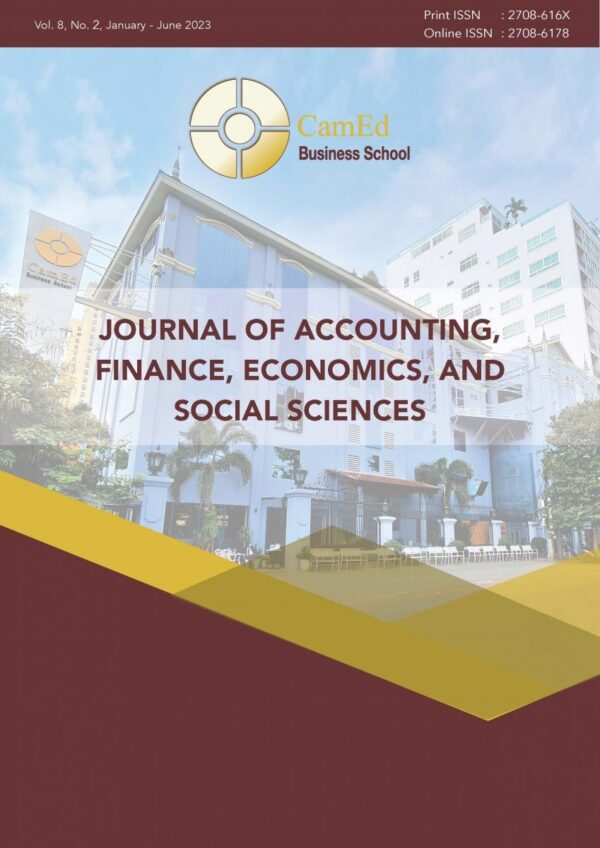Print ISSN : 2708-616X | Online ISSN : 2708-6178 | Title DOI: https://doi.org/10.62458/160224
Volume 8 | Number 2 | July – December 2023 | DOI: https://doi.org/10.62458/jafess.160224.8(2)51-60
Received : August 2023 | Revised: November 2023 | Accepted: December 2023

Kosal Song, MA, BBA
Email: [email protected]
CamEd Business School, Cambodia
Siphat Lim, PhD
Email: [email protected]
CamEd Business School, Cambodia
ABSTRACT
The error correction model was used to explore the influence of domestic and international interest rates, proxied by the 6-Month and 1-Year SIBOR, on the borrowing interest rate of bank. The primary goal of this study was to determine the pass through from the predicted borrowing rate to the lending rate. The empirical findings of this study confirmed the existence of a long-run relationship between the borrowing rate and its explanatory variables, as evidenced by the two-step co-integration test. Domestic and foreign interest rates have a substantial long-run influence on the borrowing rate. Short-term borrowing rate changes were also impacted by changes in market interest rates and SIBOR rates. The predicted borrowing rate from co-integration equation had a positive significant impact on the lending rate claimed that there had a pass through from foreign to domestic lending rate.
Keywords: ECM, Interest rate pass through, Borrowing rate, Market Rate, SIBOR.
Read full text